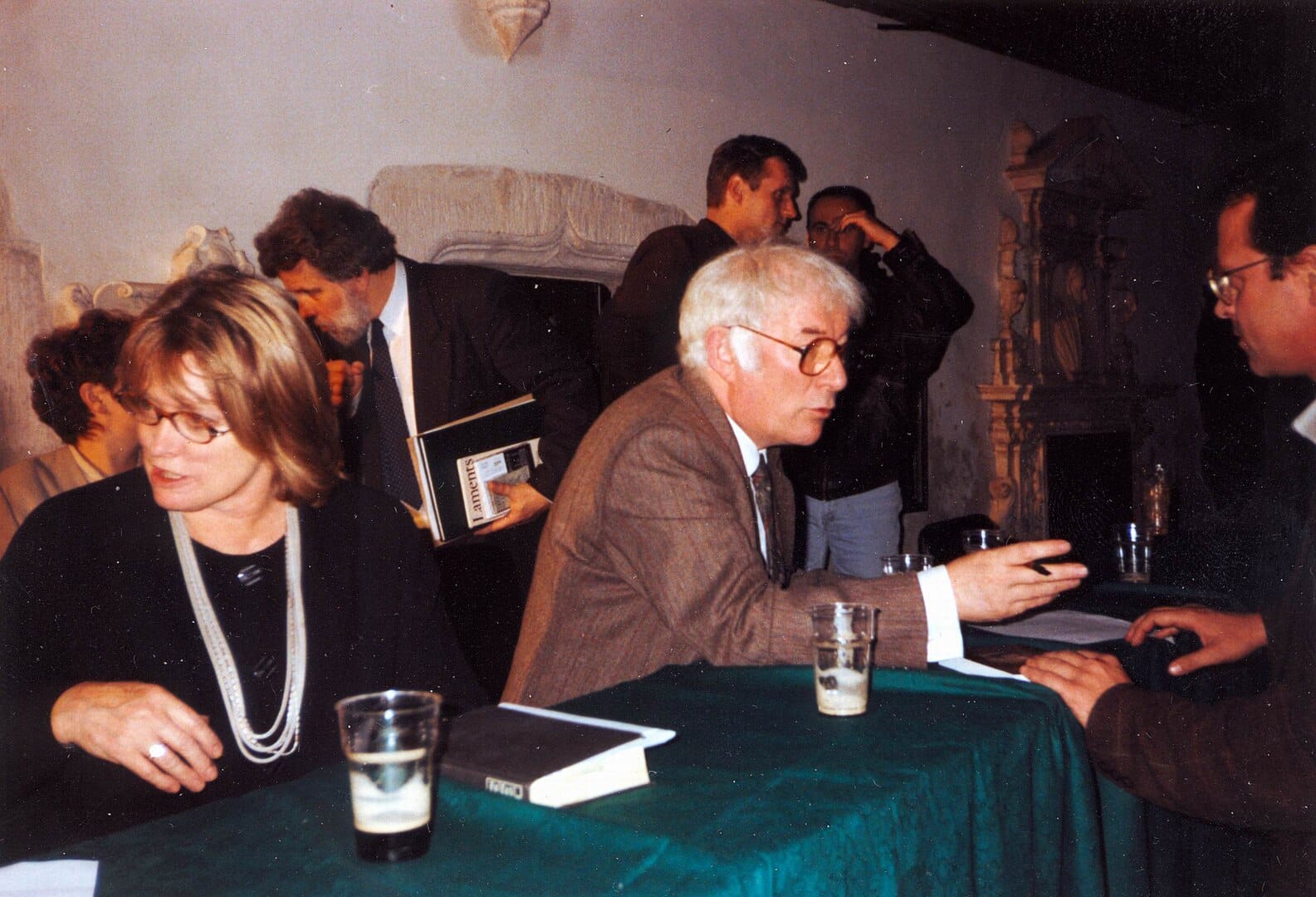 BBC News
BBC NewsBorrowing was £17.4bn last month, the second highest October figure since monthly records began in 1993.

Christopher Jackson
I don’t think any writer would in their right mind refuse the Nobel Prize for Literature, but there is a lot in this book to make one wonder whether it might be the right course of action should Stockholm call.
However busy Seamus Heaney (1939-2013) – ‘famous Seamus’ as Clive James dubbed him – might have been before he was awarded the prize in 1996, life was a constant deluge of correspondence from that point on. ‘In the last two days I have written 32 letters,’ Heaney writes to the artist Barrie Cooke in 1985, ‘all of them a weight that was lying on my mind even as the accursed envelopes lay week by week on my desk. The trouble is I have 32 more to write…’ Of course, he’s too generous to point out that Cooke is by definition in the second tranche of 32.
All poets must carry out administration, but if every one of those letters could have been a poem, this book measures out a sort of loss – the replacement of the actual work by the business of being, to use Yeats’ phrase, ‘the smiling public man’.
Heaney had a terrific set of cards: supportive parents; warm friends; and above all, an ideal wife in the academic Marie Heaney, who bore him three adored children. Marie was the centre of his existence, but no letters to her are included here, though they certainly exist. She is still alive, and it seems likely that there will be a subsequent volume after she passes to round out the picture.
This is therefore a tale of considerable success which was ordained, one feels, from the first. In poetry, the premier publishing house is probably still Faber and Faber, as it was in Heaney’s lifetime – a legacy of the role TS Eliot played in building up the original poetry list. It has probably gone down a bit since then since independent publishing is on the rise generally, and the books don’t quite have the caché they once did.
In Heaney’s day to be asked to submit to Faber – not to come cap in hand – was rare. This book begins in 1964 with Heaney in his early twenties doing just that. We start then at the crest of a lifelong wave of success: Death of a Naturalist was published in 1966, and has never been off the syllabus since. Famous friendships accrued: Ted Hughes, Czeslaw Milosz, Tom Paulin, Michael Longley and so forth.
It is also a tale of mentorship: Heaney could never resist lending a supportive voice to young poets, perhaps knowing his luck in having been elevated above his peers even from a young age. It was a network of support in relation to the endeavour of an art form which is at once charmed and economically hopeless. Even well-known poets need shoring up. ‘Poetry is small beer,’ as W.H. Auden observed. The readership is always small, and predominantly confined to fellow poets. Even Heaney, who achieved a Tiger Woods level of success, died with an estate matched by many middling solicitors. Tiger Woods himself has a yacht big enough to play golf on.
It was always kind of him to write back to poets who needed it; this book shows us that he made so many peoples’ days. To get a letter from him would, for many poets, have constituted an instant trip to the framers. That he did this is wholly admirable.
And I don’t think his doing it can easily be separated out from the quality of the poems, which emanate out of that same generosity of spirit. There is a kind of glow to Heaney’s poems which is to do with a good heart mining the world for consolation. These letters are like that too – and they show him to be a willing citizen in the republic of letters.
Poetry, and increasingly, literature itself isn’t a career. What is a career is to teach in a university, and publish books on the side which sell to an audience of 200 if you’re lucky. Heaney knew that the ship of his success had created dinghy-loads of unread poets in its wake. Perhaps there was guilt to that – but if so, he converted that guilt into this special book.